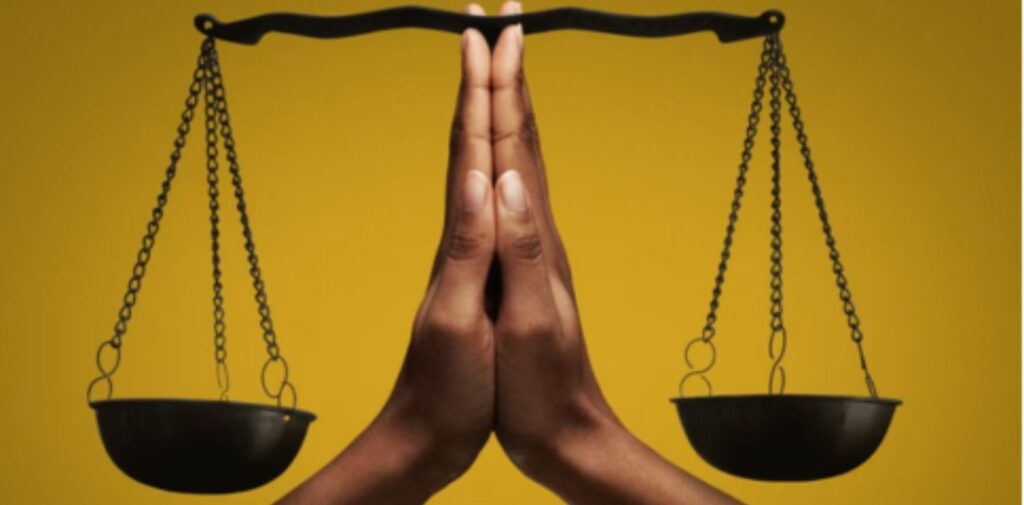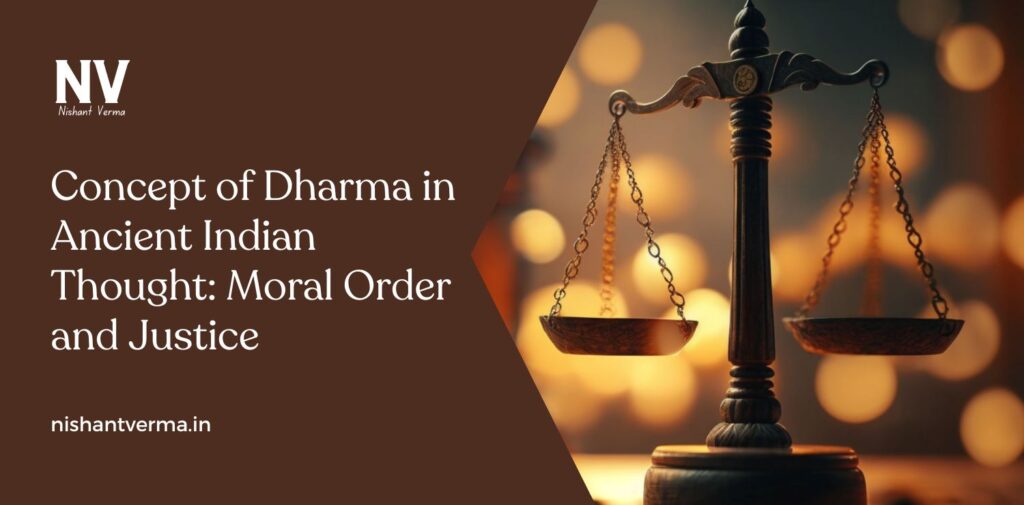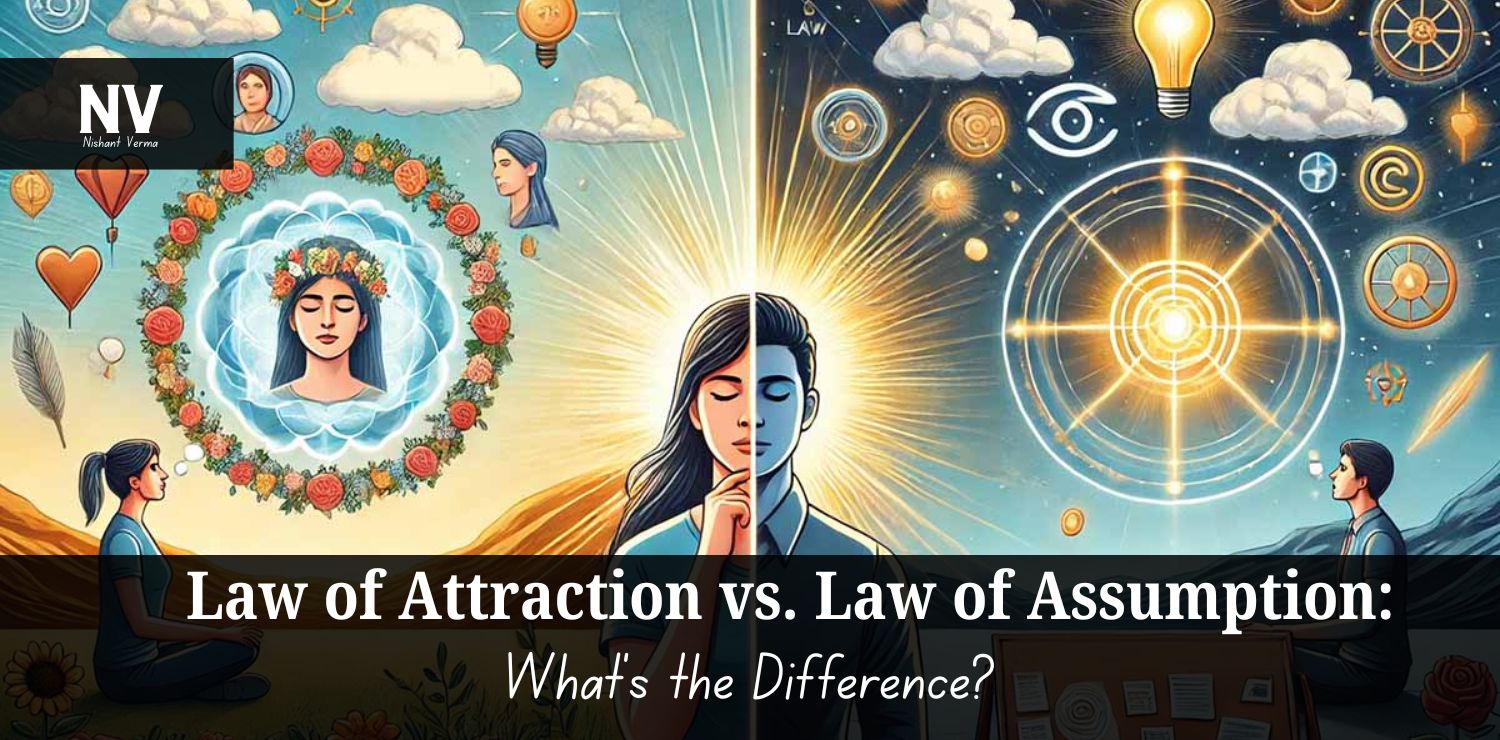India has a rich and ancient culture, and at the heart of its philosophy lies the idea of Dharma. Dharma is a word that many of us have heard in stories, books, or even in movies. But what exactly does it mean? How did the ancient thinkers and philosophers understand Dharma? And how is it connected to justice and the moral order of the world? This article will explore the concept of Dharma in a simple way, helping you understand its importance in ancient Indian thought.
What is Dharma?
The word Dharma is often translated as “righteousness,” “duty,” or “moral order,” but it is much more than that. In simple terms, Dharma refers to the principles that guide people to live a good and moral life. It is about knowing what is right and wrong and doing what is just and fair in all situations.
Imagine the world as a big, beautiful garden. If everyone works together to take care of it, the garden will thrive. But if everyone ignores their duties or harms the plants and trees, the garden will start to wither. Dharma is like the set of rules that help people work together for the well-being of everyone and everything in the world.

Dharma: The Right Path to Follow
In ancient India, Dharma was not just about personal behavior. It was about how everyone should live in society, follow their duties, and help maintain harmony. In the old texts like the Vedas, Upanishads, and the epics Mahabharata and Ramayana, Dharma is shown as the right way to live.
The concept of Dharma is also linked to the idea of a cosmic order. This means that there is a universal law that governs everything in the universe. Just as the planets follow their orbits in the sky, people must follow Dharma to keep the world in balance. When people follow Dharma, they contribute to making the world a better and more peaceful place.
How Dharma Helps in Justice
In ancient Indian society, justice was not just about laws and punishments. It was about restoring balance. Dharma plays a major role in ensuring that justice is done. Think about it like this: if someone does something wrong, the goal is not to punish them, but to help them understand their mistake and fix things. Justice, in this sense, is about righting wrongs and restoring harmony in society.
The idea of Dharma also teaches us that justice should not be blind or one-size-fits-all. Different people have different roles in society, and Dharma tells us that the duties of a king are different from the duties of a teacher or a parent. Each person has their own path, and following Dharma means understanding your role and fulfilling it with integrity.
In the epic Mahabharata, the great warrior Arjuna is confused about what to do in the battle of Kurukshetra. Lord Krishna, his charioteer, explains to him that Dharma is not just about following laws but also about doing what is right in the situation. Krishna tells Arjuna that it is his duty (or Dharma) as a warrior to fight for justice, even if it means going against his own family. This teaching helps us understand that Dharma sometimes requires us to make difficult choices for the greater good.

The Four Main Goals of Life and Dharma
In the philosophy of ancient India, people believed that life had four main goals: Dharma (righteousness), Artha (prosperity), Kama (pleasures), and Moksha (liberation). Each of these goals plays a role in a person’s life.
- Dharma is about living a righteous life and following your duties.
- Artha is about earning a living and being successful in the material world.
- Kama is about enjoying life’s pleasures, like love, friendship, and beauty, in a healthy way.
- Moksha is the ultimate goal, which is liberation or freedom from the cycle of life and death.
Dharma is the foundation on which the other three goals are built. Without Dharma, prosperity and pleasures can lead to harm and destruction. When people follow Dharma, they live a life of balance, where material wealth and personal enjoyment do not harm others or society.
Dharma and Society
In ancient India, society was divided into different groups based on roles, known as the Varna system. This system was meant to organize society and ensure that everyone had a role to play. Each person had a Dharma according to their role. For example, a king’s Dharma was to protect his people and rule justly, while a teacher’s Dharma was to educate others.
This idea of roles is still important today. Every individual has responsibilities, whether at home, school, or in the workplace. Following your Dharma means doing your job with sincerity, honesty, and fairness. It is about making a positive impact on the people around you and contributing to the well-being of society.

Dharma in the Modern World
You might wonder if the idea of Dharma still matters today. The answer is yes! Even though society has changed, the core idea of Dharma is still relevant. We all have responsibilities towards our families, our communities, and our planet. Living according to Dharma helps us make better choices, be kind and fair, and contribute positively to the world.
For example, when you help someone in need, or speak the truth even when it’s hard, you are following your Dharma. The idea of justice in Dharma is also reflected in modern laws that aim to protect people’s rights and ensure fairness. Just as Dharma encourages us to treat others with respect, modern laws ask us to follow rules that protect the well-being of all.
Conclusion: Dharma in Ancient Indian Thought
The concept of Dharma in ancient Indian thought is not just an idea; it is a way of life. It teaches us to live honestly, respect others, and fulfill our duties. Whether in ancient times or in today’s world, Dharma helps maintain moral order and justice. By following Dharma, we can live a life that is fair, peaceful, and fulfilling.
In the end, Dharma is like a compass that helps us navigate through life. When we stay true to our duties and act with righteousness, we not only make our lives better but also help create a better world for everyone. So, whether you’re a student, a teacher, a parent, or anyone else, remember that your Dharma is to do what is right and to contribute to the greater good of society.
By understanding and following Dharma, we can build a world that is just, harmonious, and full of love and respect.




